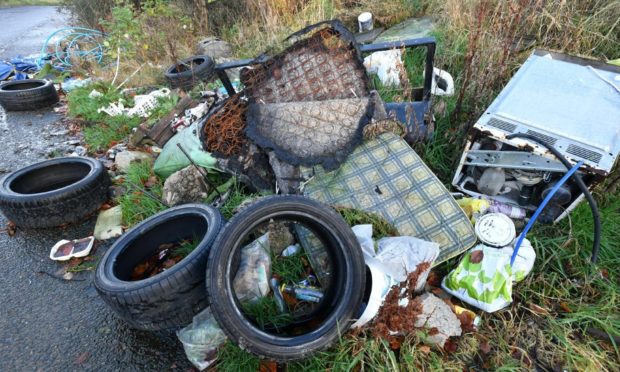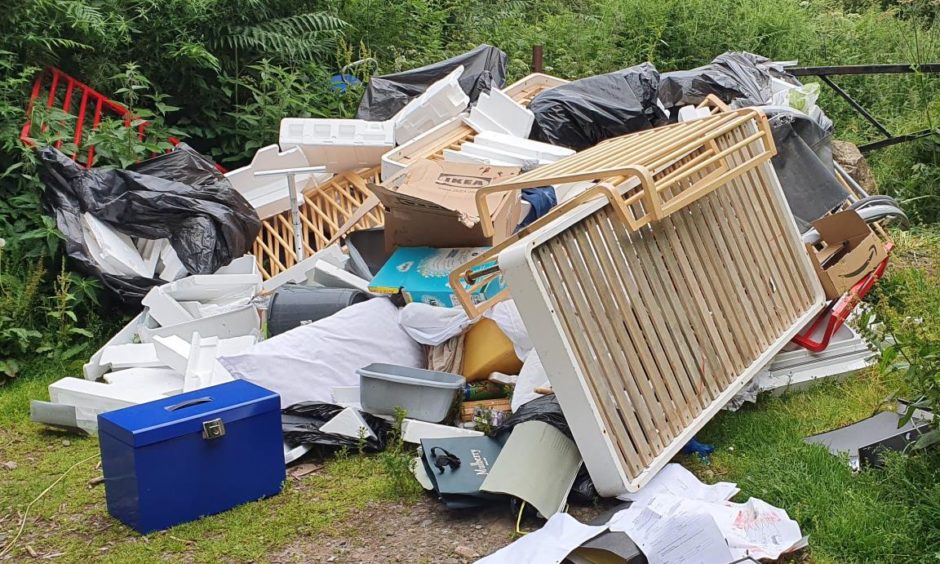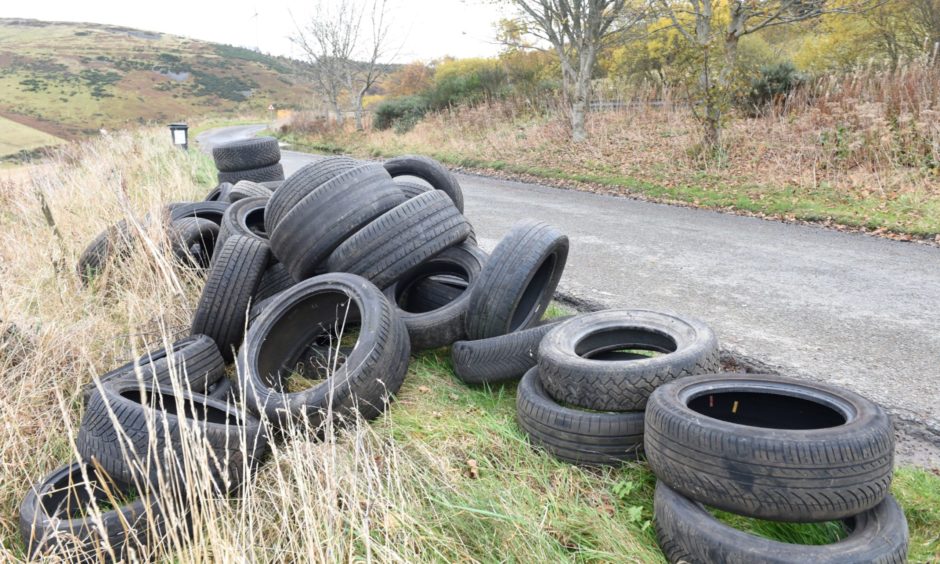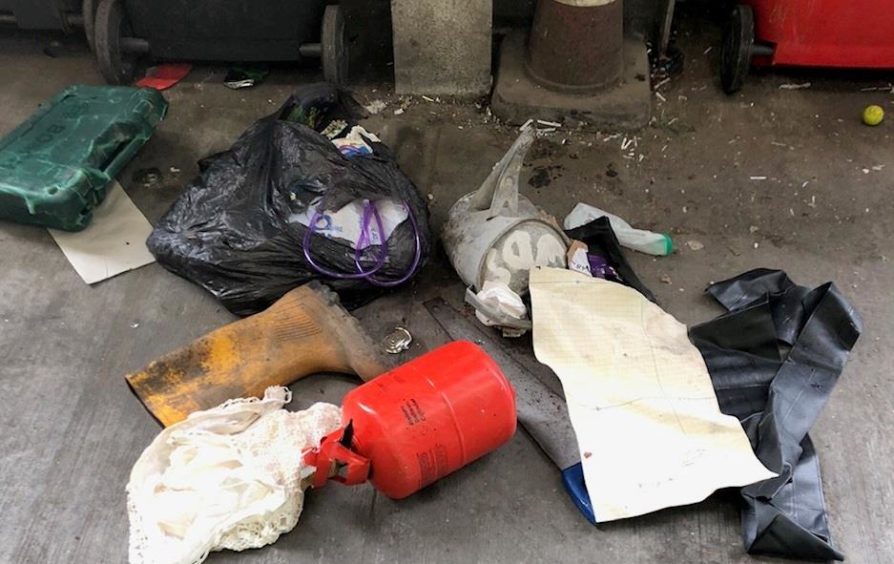Shocking statistics have revealed just one in 220 fly-tipping incidents have resulted in fines across the north and north-east during the last year.
Reports of rubbish dumped in city streets and country lanes have surged since lockdown began.
Figures obtained by the Press and Journal show that incidents reported to councils in the region have surged by nearly 20% during the coronavirus pandemic to 5,551.
Issuing fly-tipping fines ‘impossible job’ in Aberdeen
Despite the increase and the massive scale of the fly-tipping problem just 25 fines were issued against offenders – with 12 in Moray alone, eight in the Highlands and five in Aberdeenshire.
Clear-up costs for councils across Scotland are estimated by Sepa to cost £2.5 million every year.
Aberdeen City Council has reported the largest number of fly-tipping incidents in the north-east with 3,778 between April 2020 and February 2021 – an increase of 267 from the preceding 11 months.
However, wardens have not issued any fines during that time while the local authority says it is working on systems to tackle the issue.
Midstocket and Rosemount councillor Bill Cormie said: “I’ve never seen so much fly-tipping. It’s been absolutely horrendous during lockdown.
“Cul-de-sacs with dead ends tend to be where it is happening, but you also see mattresses and furniture just dumped on the street.
“Dark nights in winter encourage it, people tend to drive to different parts of the city to just dump it.
“It’s almost an impossible job to enforce it because even if someone takes a number plate then the person doing it can just deny it.
“The wardens have been out but it’s been a very difficult job for them.”
Councils vow to ‘get tough’ on fly-tipping offenders
Recycling centres being closed during the early months of the coronavirus pandemic has been cited as one possible reason for the surge in cases.
Zero Waste Scotland has launched a “dumb dumpers” campaign to allow members of the public to report issues.
Aberdeenshire Council has reported a massive 66% increase in fly-tipping to 1,143 in the 11 months after lockdown compared with the same period before while issuing 11 fines over the last two years.
The local authority has vowed to get tough on offenders while urging households to manage waste responsibly.
Reminders have been issued to residents not to resort to dropping items in wheelie bins after potentially explosive small gas cylinders have been discovered in recycling collections.
The propane canisters had been tipped into bin lorries before only being spotted when they were emptied at the depot.
Ros Baxter, waste manager at Aberdeenshire Council, said: “It is a sheer miracle that these gas cylinders remained intact during the collection process.
“Had they been crushed and damaged, they could have exploded which would have caused serious damage to the vehicles.
“Contamination of recycling is a real concern for us and it could result in us having to send an entire batch of recyclable material to landfill which costs the council – and ultimately the taxpayer – money.”
Moray Council issues most fly-tipping fines
Highland Council has experienced only a marginal increase in fly-tipping reports with 209 in the 11 months before lockdown compared to 235 in the 11 months after.
Meanwhile, Moray Council, which issued the most fines, says the increase in penalties was due to the rise in cases reported and not any specific enforcement campaign.
Residents have reported piles of rubbish, furniture and tyres being dumped in rural locations and beauty spots throughout lockdown as reports have increased by 38% to 358.
David Bremner, chairman of the authority’s planning and regulatory services committee, said: “What we do tend to get, particularly in my ward in Garmouth, is people just dumping rubbish, sometimes not even in a bag, at the recycling point and expecting other people to deal with it.
“There was one I reported the other week where someone had actually left their bank statement in it, which was quite handy, so I could see they had driven out from Elgin to dump it.
“It’s very difficult for staff to enforce because they either have to catch them in the act or have something identifiable dumped, and most people are careful not to do that.”






Conversation